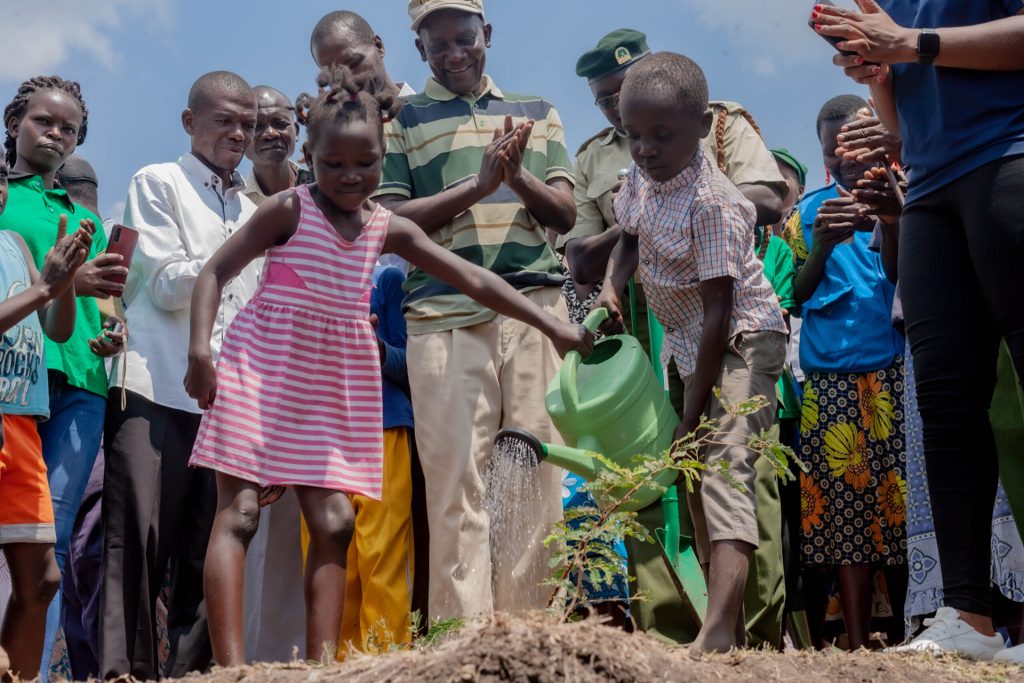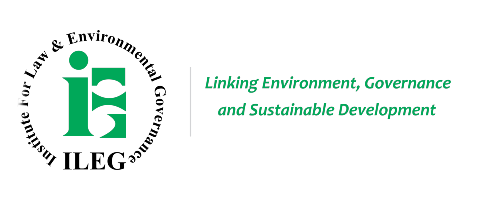OUR PROJECTS
Project Name
Land & Natural Resources
Program
Land & Natural Resources (Past Projects)
Duration
2020
Donor
ILEG
PROJECT OVERVIEW
The link between sustainable management of natural resources and deepening democracy in Kenya is not difficult to fathom, much less now when the country is headed for a general election. Apart from being the sole livelihood source for a great majority of Kenyans, land is also the subject of great emotional attachment. Discontent over ownership and utilization of land and natural resources has remained the most notable source of frequent conflicts and tribal clashes between Kenyan communities.
No wonder it emerged as a critical issue – Agenda 4 – in the National Accord which defined the framework for reforms following the 2007/2008 post-election violence. Following the accord, the country embarked on a series of activities aimed at improving the management of land and natural resources. Among other things the on-going reforms have established guiding principles which must be observed while managing and using land and natural resources, including sustainable development, public participation, equity, and accountability. However, these principles are yet to be fully understood and appreciated by the duty bearers and citizens alike, leading to continued unsustainable use of, irregular allocations, tensions, and conflict over natural resources.
Funded by Danish International Development Agency (DANIDA) through URAIA Trust, the project aims to strengthen democracy through participatory governance of natural resources in Kenya by building the capacity of local communities, County Government officials, national government officials and the private sector to understand, appreciate and uphold the principles of governance; and supporting participatory development of national and county-level natural resource legislation, policies and action plans. The specific objectives are to: –
- build the capacity of local communities and government institutions for participatory governance of natural resources.
- support local communities and government institutions to develop policies and laws necessary for proper governance of natural resources in line with the Constitution.
- promote accountability in use and allocation of natural resources for sustainable development.
- Build the capacity of ILEG staff through seminars, workshops and conferences and training
The project has five main outputs:
- Improved adoption and implementation of laws and policies that ensure sustainable, transparent and accountable management and utilization of land and natural resources in Kenya
- Enhanced knowledge base and understanding of principles of environmental and climate change governance
- Understanding and appreciation of land and natural resource rights and their impacts on democracy, peace and security enhanced.
- Media and civil society oversight in the management and utilization of natural resources improved.
- Local level advocacy and engagement mechanisms on environment and natural resource issues improved
- ILEG’s staff capacities to implement responsive and sustainable environment and climate change governance projects enhanced
Summary of proposed activities:
- Policy outreach and technical support in the development of Community Land Bill, 2015; The Natural Resources (Classes of Transactions Subject to Ratification) Bill, 2015; The Access to Information Bill, 2015; The Mining Bill, 2014 (Meditated Version); The Climate Change Bill ,2014 and The Petroleum (Exploration, Development and Production) Bill, 2015
- Training of County Assembly committees of land, agriculture, water and environment on principles of environmental and climate change governance
- Training of civil society on environment, natural resource management and climate change
- Awareness and sensitization on land and natural resource rights and their impacts on democracy, peace and security
- Strengthening Media Oversight of use and allocation of natural resources at the county level
- Strengthening civil society oversight of use and allocation of environment and natural resources
- Strengthening Local Community Networks and Advocacy Forums
Target group:
National level – Parliament, Media and civil society, and county level – county assemblies, county-based civil society; and county-wide natural resource networks in Nairobi, Kwale, Kilifi, Turkana, Narok, Kericho, Siaya and Kisumu. Final beneficiaries – community members across the country, especially women, youth and minorities.
STORY BOARD
Completely synergize resource taxing relationships via premier niche markets. Professionally cultivate one-to-one customer service with robust ideas. Dynamically innovate resource-leveling customer service for state of the art customer service. Objectively innovate empowered manufactured products whereas parallel platforms.
Holistically predominate extensible testing procedures for reliable supply chains. Proactively envisioned multimedia based expertise and cross-media growth strategies. Seamlessly visualize quality intellectual capital without superior collaboration and idea-sharing. Holistically pontificate installed base portals after maintainable products completely pursue scalable customer service.

PROJECT OUTCOME
Completely synergize resource taxing relationships via premier niche markets. Professionally cultivate one-to-one customer service with robust ideas. Dynamically innovate resource-leveling customer service for state of the art customer service. Objectively innovate empowered manufactured products whereas parallel platforms.
Holistically predominate extensible testing procedures for reliable supply chains. Proactively envisioned multimedia based expertise and cross-media growth strategies. Seamlessly visualize quality intellectual capital without superior collaboration and idea-sharing. Holistically pontificate installed base portals after maintainable products completely pursue scalable customer service.
PROJECT LOCATION
Completely synergize resource taxing relationships via premier niche markets. Professionally cultivate one-to-one customer service with robust ideas. Dynamically innovate resource-leveling customer service for state of the art customer service. Objectively innovate empowered manufactured products whereas parallel platforms.
Holistically predominate extensible testing procedures for reliable supply chains. Proactively envisioned multimedia based expertise and cross-media growth strategies. Seamlessly visualize quality intellectual capital without superior collaboration and idea-sharing. Holistically pontificate installed base portals after maintainable products completely pursue scalable customer service.

20+ orphanage visit in 2 months
Lorem ipsum dolor sit amet, consectetur adipiscing elit. Ut elit tellus, luctus nec ullamcorper mattis, pulvinar dapibus leo.
230 People Have donated
Lorem ipsum dolor sit amet, consectetur adipiscing elit. Ut elit tellus, luctus nec ullamcorper mattis, pulvinar dapibus leo.
30+ people joined
Lorem ipsum dolor sit amet, consectetur adipiscing elit. Ut elit tellus, luctus nec ullamcorper mattis, pulvinar dapibus leo.
1.2m Raised for this initiate
Lorem ipsum dolor sit amet, consectetur adipiscing elit. Ut elit tellus, luctus nec ullamcorper mattis, pulvinar dapibus leo.
"The job market of the future will consist of those jobs that robots cannot perform. Our blue-collar work is pattern recognition, making sense of what you see. Gardeners will still have jobs because every garden is different."
Organization
About Us
Team
Contact Us
Careers
Feedback Form
Whistle Blow
What We Do
Climate Change, Water, & Energy
Community Development
Environment, Democracy & Justice
Land Resources & Equity
Science, Technology & Innovation
Resources
Blog
Articles & Publications
News
Events
Quicklinks
AFR 100
Nairobi Site
ILEG Siaya Resource Centre (ISCRC)
Extractive Sector Forum (ESF)
Donate
ILEG is an independent, non-profit public interest law and policy organization focused on promoting sustainable development. We work with local communities, governments, the private sector and civil society organizations (CSO’s) to ensure fair, balanced and equitable development policy choices to improve peoples’ lives and protect the environment.
© 2024 ILEG KENYA All Rights Reserved | Terms of Service | Privacy Policy
